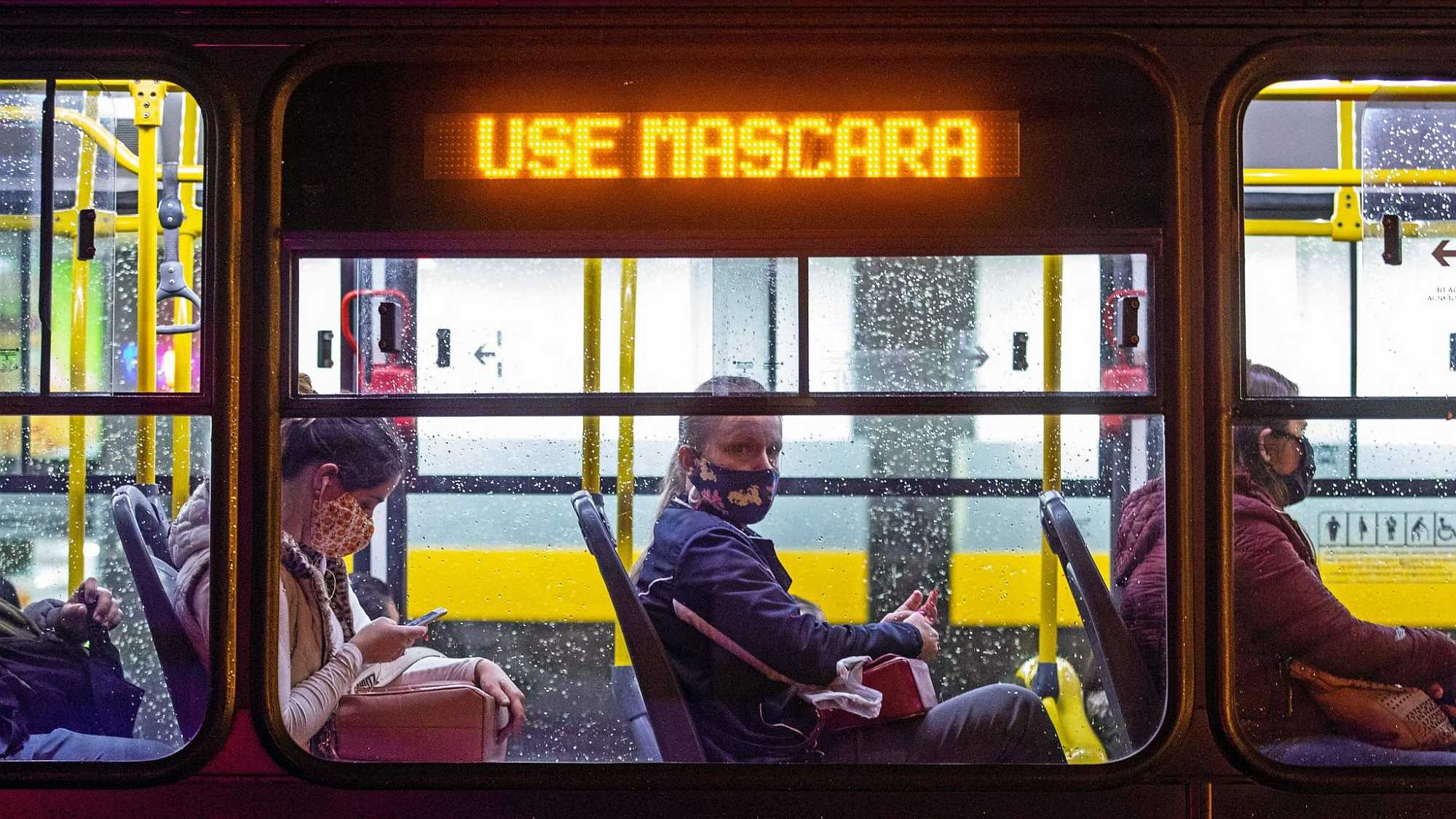Christmas is coming.
Like many people around the world, Brazilians envy North Americans for their Hollywood lifestyles – big cars, big houses. However, what most people don’t realize is North Americans envy Brazilians at this time of year.
For the ten percent of the world’s population that lives below the equator, it’s now summer vacation from school plus the longest day of the year, the summer solstice, followed four days later by Christmas, which is just the prelude to New Year’s celebrations and Carnaval. It’s an embarrassment of riches.
Sadly, this year will be different. The Covid pandemic has changed the holidays for everyone in every country north and south, east and west.
No one is happy about avoiding parties especially at Christmas, and some people will choose to violate the rules of common sense and attend large gatherings because a Christmas or New Year’s without a celebration is incomprehensible.
With the pandemic every day we weigh the scales of our fate. We are forced to decide how much public contact we can risk while waiting for the coming vaccines. Some people have not left their homes in nine months, while others are boarding planes to beaches in the Northeast of Brazil or the Caribbean.
I’ve taken only one plane excursion during the epidemic, and I confess flying is easier under Covid conditions. The airports are less busy and seats in the airport waiting areas are X’d off to prevent crowding.
All airport employees are wearing masks including security guards and food clerks. Water fountains have been disconnected. I took a 45-minute flight from Curitiba to São Paulo, and the flight attendants were wearing masks. Passengers were required to keep theirs on at all times during the flight.
No food was served, not even snacks. Upon arrival, no one was allowed to step into the aisle. A flight attendant directed the orderly deplaning one row at a time. In my mind, it was exactly how a plane should be emptied whether there’s an epidemic or not.
Why not be calm and organized instead of the usual mad rush with overheard suitcases accidentally dropping on passengers’ heads. Usually, the instant a plane’s wheels hit the ground after a mere one-hour flight, it looks like animals suddenly freed from the zoo.
Staying at home, social distancing, and avoiding vacations and parties are particularly difficult for Brazilians. Brazil is a “high-contact culture” and Brazilians suffer more from a lack of social contact than North Americans.
High-contact cultures like Latin America and the Mediterranean countries maintain closer interpersonal distance while talking, make more eye contact, and speak more emphatically, in general. North America, northern Europe, and Asia are low-contact cultures.
For those quiet North Americans like me who aren’t fluent in Portuguese, it’s not a great sacrifice to be missing parties in Brazil. There’s nothing wrong with socializing and relaxation, but during the holiday season I find it a bit overwhelming here.
In a typical non-Covid year, Christmas office parties in Brazil are so plentiful they have trouble finding enough venues to host them; thus the celebrations begin in November. And that’s only the tip of the festive iceberg because there are birthday parties, too.
Starting at age one, every year requires a public testimonial to continued existence. Who remembers a party they hosted when they were one? In low contact cultures where vanity is a negative trait, throwing your own birthday party is considered egotistical.
Besides all the canceled parties, I also like the Covid custom of a clerk checking my temperature when I enter the supermarket as she sprays alcohol gel in my palm. While it’s not a foolproof method for verifying the presence of the virus, it’s better than nothing.
Checking my temperature is not something I’m bothering to do at home. Knowing my temperature, I’m more confident I’m not walking around with some kind of virus or flu. Who knew a supermarket clerk could be so concerned about my health. It’s endearing.
Additionally, thanks to the Covid fashion of conscientious mask-wearing, it’s not always easy to recognize people. I find this helpful when trying to avoid a nosey neighbor. If she calls out my name, I can apologize and claim I didn’t recognize her and she won’t be offended.
Similarly, using a mask provides me with a half-cloak of invisibility. Should I suddenly need to perform some superhero activity, I’m ready. Masks look subversively cool, part of a rebel’s outfit.
Now that summer is here, masks can get uncomfortable from sweating. However, I appreciate that I can walk uphill for thirty seconds and with my mask damp, fool myself into thinking I’m getting a CrossFit workout.
On the down side, portrait painters and photographers aren’t making a living with everyone wearing a mask.
Did I mention the positive effect Covid had on the way Americans voted in the presidential election last month? In the past, U.S. voting by mail was not the norm. About 30 million people voted by mail in 2016, but this year that number was more than 80 million.
Many states make it bureaucratically annoying to vote by mail requiring an explanation why the voter cannot show up in person on election day, which is always on a Tuesday according to the U.S. Constitution when most people are working.
This year became of the pandemic almost everyone was provided access to mail-in ballots without any justification required. Also, many states allowed early voting so it wasn’t necessary to vote on election day and stand on long lines.
It was a nightmare for the election workers who had to count tens of millions of paper mail ballots by hand, which is why the final tally wasn’t official until Saturday, four days after the election. Many of the election workers were volunteers eager to support the workings of democracy.
However, the Covid shift in the voting procedure made it easier and safer on voters, a major improvement. The Pew Research Center reported 94 percent of Americans found voting easy.
Brazil still has better voter turnout than the U.S. with 80-90 percent of the eligible population voting. In the 2020 U.S. election, with the highest turnout ever, 163 million people, only 66 percent of eligible Americans, voted. Of course, voter turnout is improved when there’s a Brazilian law requiring that everyone vote with penalties for those who don’t.
Trump supporters, not surprisingly, weren’t happy about all the mail-in ballots; thus there’s no guarantee they will still be in use four years from now. Donald Trump, considered by some observers to be the worst president in American history, lost his bid for re-election, the first time an incumbent president was voted out after his first term in 40 years.
From a medical standpoint, the huge increase in Americans voting by mail means the populace chose Covid caution over Covid deniers. Science and medicine won out over anti-vaxxers and stimulating the economy.
For the more sensible, it was a declaration that Covid is not fake news. One million 600 thousand people have already died of the invisible virus worldwide, and there will be more to come in 2021. Hospital workers are praying desperately for a rapid rollout of the several promising vaccines.
Meanwhile, the Covid crisis has had no effect whatsoever on some aspects of daily life. For example, I was awakened the other morning by an industrial garbage collection. It was one of those flatbed trucks that picks up a full construction dumpster and drops off an empty one.
I understand why they normally come at 5:30 a.m., as once the streets in front of my apartment building fill up with parked cars, it’s impossible for the truck to pull up alongside the dumpster. However, these days the streets are empty of parked cars all day. I live in front of Curitiba’s state government offices, and they’re closed along with the law offices nearby.
Other than needlessly being awakened at 5:30, I’m thrilled by the available parking and lack of traffic. Covid has made driving in Curitiba pleasant. There’s no waiting for tables at restaurants. The malls are less crowded and store clerks are falling over themselves to be helpful.
Additionally, the drop in retail sales has produced a huge upswing in global online sales. Until now, Brazilians have been slower to adapt to online shopping than North Americans. Not only is online shopping safer for consumers, it offers an avenue for new business opportunities.
Especially encouraging is the increase in online mental health services, which are particularly valuable these days. Suicide rates have increased dramatically in Brazil, a country where suicide was nearly unheard of 20 years ago. An unofficial police source reports that Curitiba has been averaging 3 suicides a day during the pandemic.
Unemployment was already at 12 percent in Brazil before Covid struck. With high unemployment, addressing mental health issues is of paramount importance. High-contact cultures depend more heavily on socialization, and Brazilians are suffering from the mandates for isolation. Without an escape for festivities, there’s been a drastic increase in domestic violence.
The best approach is to be grateful in the knowledge that the first vaccines are already being distributed in some countries. Help is on the way if we can relax into the idea of having a small holiday party this year. By using a little self-discipline toward social distancing, we’ll stay healthy and future celebrations will be all the more exciting.
B. Michael Rubin is an American writer living in Brazil. His website is http://www.bmichaelrubin.com






